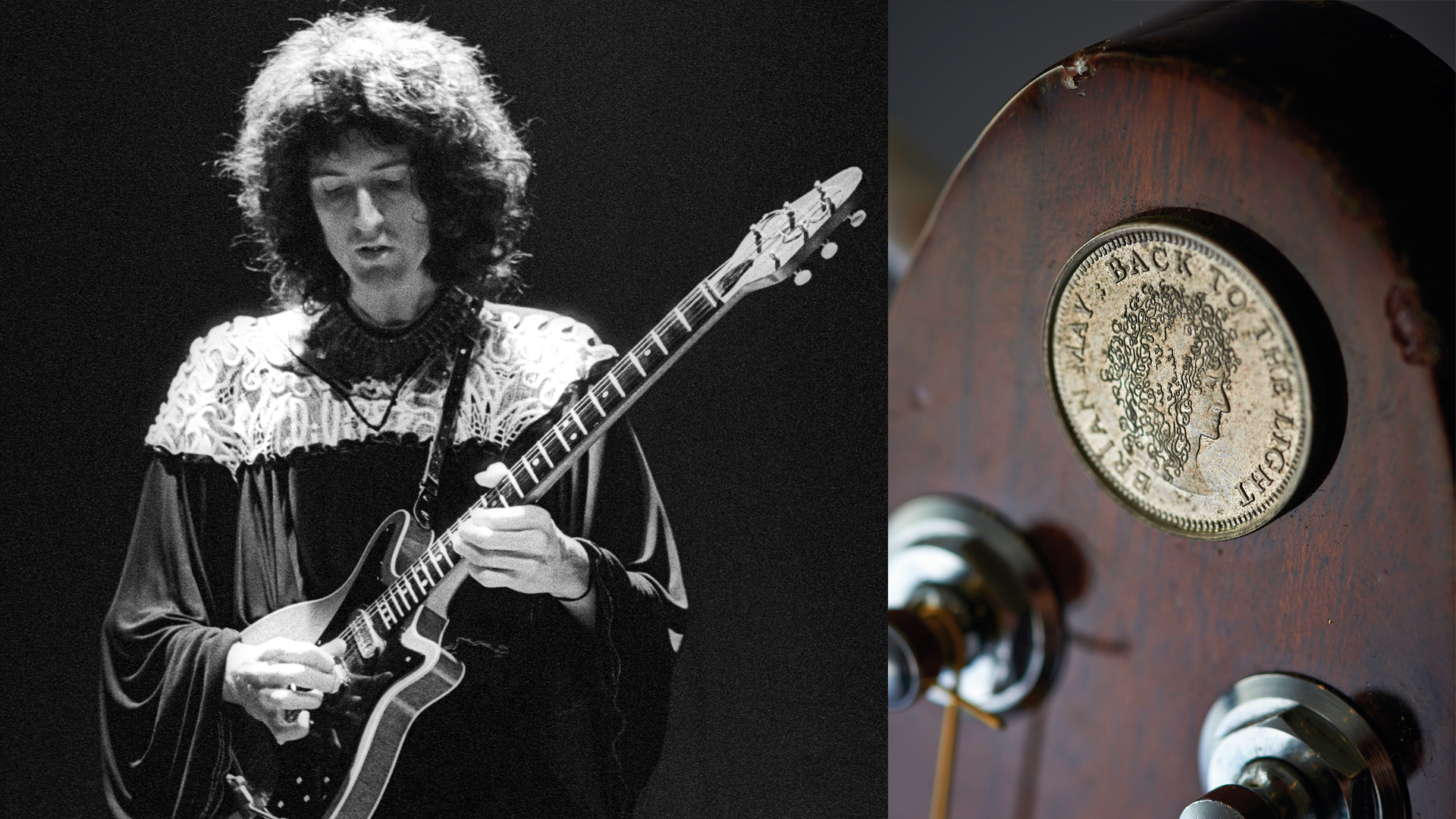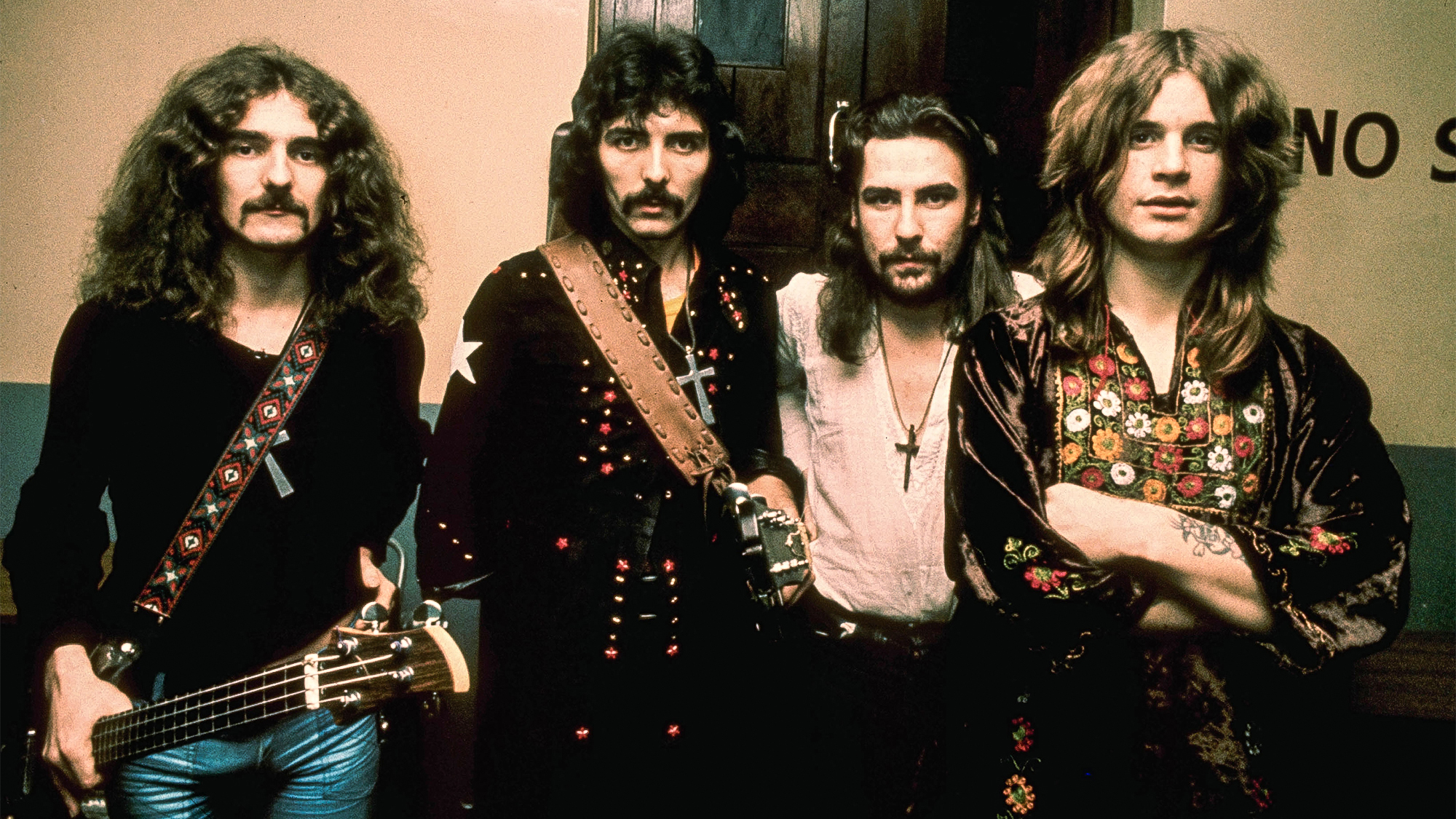“He always has a stack of older six-penny pieces he could rely on.” Why old coins proved the perfect guitar pick for Brian May
The guitarist is famed for his use of his Red Special guitar and a Vox AC30 amp, but a Queen expert believes his unusual choice of pick is just as important to achieving his tone

All the latest guitar news, interviews, lessons, reviews, deals and more, direct to your inbox!
You are now subscribed
Your newsletter sign-up was successful
Since Queen’s debut album was released in 1973, plenty has been said about Brian May’s guitar tone, and rightly so. Yet, while most look to his handcrafted Red Special guitar, alongside a Vox AC30 combo and a treble booster as the secrets to his tone, a Queen expert has pointed out a lesser-known but equally significant element: sixpence guitar picks.
Guesting on the Booked on Rock Podcast to promote his new book, Queen & A Night at the Opera: 50 Years, author Gillian G. Gaar has spoken about the big impact the unusual guitar picks have on his overall sound.
“He didn't like a pick,” Gaar explains. “And Brian, being ever so meticulous about this stuff, was saying that the older six-penny pieces, which would probably be a type of pence coin these days, had more nickel in them.
“So, they were a bit softer, and the serrated edge would help him get different tones from the guitar. He always has a stack of older six-penny pieces he could rely on. I think he said people mail them to him as well.”
According to Gaar’s book, May isn’t just after any old coin; he has a very specific criterion any would-be pick needs to meet.
“He said, 'Sixpences expenses are very soft metal, which doesn't hurt the guitar strings. But if I turn that serrated edge at an angle to the string, I can get that kind of articulating percussive, consonant sound,’” the book states.
“‘Before about 1950, they had a high content of nickel. Which makes them really soft. So, I especially like a 1947 sixpence, the year that I was born.'”
All the latest guitar news, interviews, lessons, reviews, deals and more, direct to your inbox!
While the six-penny piece is now consigned to the history books, the coin, which was first minted in 1551, remained in circulation until 1980, nearly a decade into Queen's career. May likely had a sizable number of the coins set aside by that point.
The coin is so important to May that he has a custom made "Maydusa" six-pence glued to the headstock of his Red Special. The legend on it reads "Brian May: Back to the Light."
Billy Gibbons is another iconic guitarist who ditched traditional picks for currency, finding a Mexican peso far better for the job. Speaking of the switch to Guitar World in 2005 he said, “Tommy Carter of Jimmie Vaughan's Dallas band the Chessmen used a quarter to play bass. He described the serrated edge of the coin as producing a delightful scratchiness as he scrubbed the strings.
“That gave me the idea, and our love of the Mexican border is what drew us to the peso. The peso coin is a rarity, but we've still got a few filed down for the ready.”
Of his famed Vox AC30 and treble booster loyalty, Brian May took inspiration from Rory Gallagher, having seen him perform at London’s Marquee back in his Taste days.
“I managed to stay behind at the Marquee when everyone had gone home," he recalls. “I asked him, ‘Rory, how do you get that sound?’ And he said, ‘Well, it’s easy, I have the AC30 and this little box, and I turn it up and it sings for me.’ The next day, I went to a guitar shop and found two secondhand AC30s for £30 each.”
May, now a signature Gibson artist, says it’s “not out of the question,” that his Red Special could receive a Gibson-made reissue in the near future.
Of the guitar’s DIY origins, the guitarist revealed that “everyone told us it was never going to work,” but says, upon hearing the band’s first album played back in the studio, it was a guitar he knew he could conquer the world with.
The guitarist made a surprise appearance at Coachella this weekend, starring in Benson Boone’s set during a rousing “Bohemian Rhapsody,” although the crowd’s lack of appreciation for the guitar legend has been met with derision by the Queen fanbase.
A freelance writer with a penchant for music that gets weird, Phil is a regular contributor to Prog, Guitar World, and Total Guitar magazines and is especially keen on shining a light on unknown artists. Outside of the journalism realm, you can find him writing angular riffs in progressive metal band, Prognosis, in which he slings an 8-string Strandberg Boden Original, churning that low string through a variety of tunings. He's also a published author and is currently penning his debut novel which chucks fantasy, mythology and humanity into a great big melting pot.



